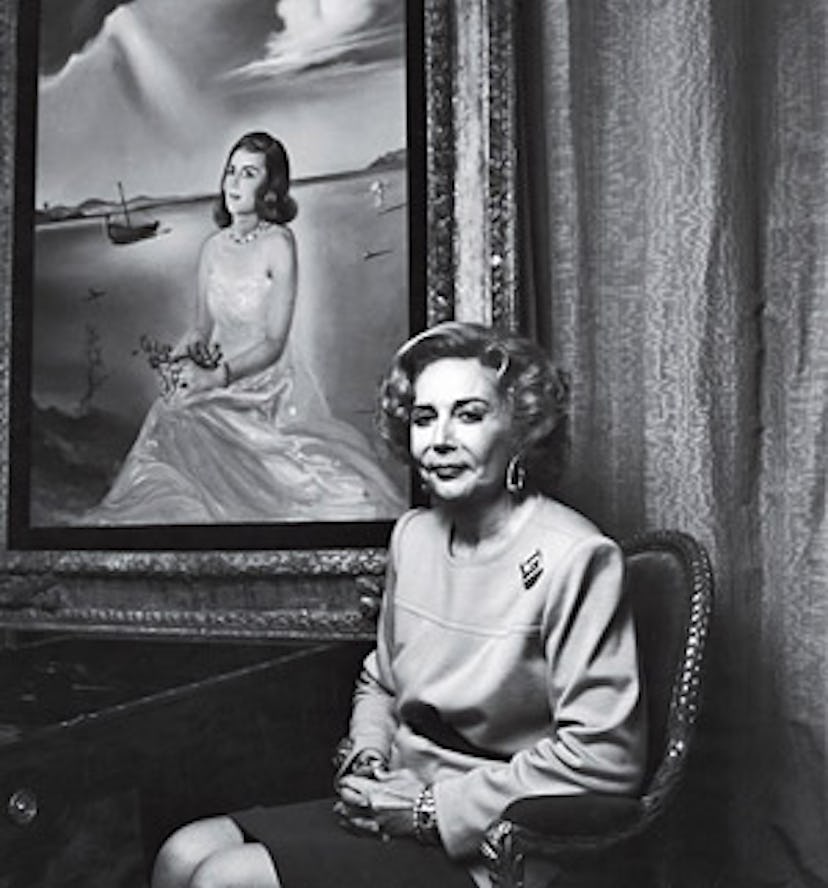Portrait of a Lady

With outré style and a reputation for speaking her mind, Sao Schlumberger was not a great believer in restraint. The Portuguese wife of French-American oil tycoon Pierre Schlumberger, she was a patron of fashion and art, with a particular fondness for Rothko, Rauschenberg and Lichtenstein. Salvador Dalí painted her portrait, learning that she was not an easy subject to please. “I don’t really like it,” she said of the surrealist’s rendering in an interview with Women’s Wear Daily, W’s sister publication, in 1987. “I was expecting a fantasy…but he did a classic.”
Her grand homes were works of art themselves—or not, depending on whom you asked. In the early Nineties designer Gabhan O’Keeffe decorated her place near the Eiffel Tower in bright red, kelly green and cool blue, with a dining table that could fit 40. When fellow socialite Rosemarie Kanzler described the place as “bad Visconti,” Schlumberger retaliated, as WWD reported in 1995, by telling a group of dinner guests, “Poor Rosemarie must be terminally ill to say those things. You know that she has never been here?”
Schlumberger, who died this past August, was equally daring with her clothing. In 1996 WWD wrote that she drew gasps at the Palais Garnier opera house when she entered on the arm of Japanese billionaire Yoichi Yogi Nishikawa—the two were dressed in “matching sequined tiger-print” getups, hers a Christian Lacroix. No outfit, of course, was complete without baubles. As she griped to W in 1987, “There is nothing more annoying than seeing a woman with the means to buy anything she wants who always wears the same piece of jewelry.”
Travel was also a passion, but the extravagant socialite was difficult to impress. As W reported in 1994, on a trip to Saint Petersburg with Hélène de Ludinghausen and the Stroganoff Foundation, her fellow travelers marveled at a lapis lazuli urn in the Hermitage while Schlumberger all but yawned, stating, “It’s all relative.”
Portrait: Fairchild Archive